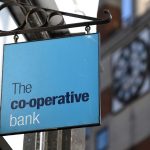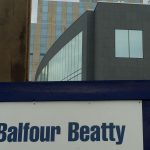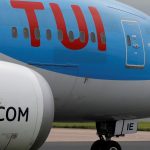The chief executive of a Premier League club has apologised to fans as football became the latest part of the economy to feel the effect of worker and supply shortages.
Paul Barber, who runs Brighton and Hove Albion, emailed supporters following Saturday’s home defeat by Everton to say sorry for a lack of catering staff and stewards.
Fans had complained online after the match and Mr Barber admitted that for now supporters “may not have as wide a choice of food and drink” as they would like.
Earlier this month, Championship side Middlesbrough warned fans that “due to supplier shortages and issues within the logistics sector” it was experiencing problems sourcing beer and some food items, ahead of a match against Queen’s Park Rangers.
Elsewhere, League Two Crawley Town told supporters before its latest home fixture against Northampton Town that self-isolation and general lack of staff availability meant that queues and delays were likely.
Football matches are resuming with full attendances after 18 months during which they have been closed or subject to strict spectator limits as a result of the pandemic.
Supply chain and worker shortages are being felt across the economy, with food outlets including McDonald’s, Nando’s and Greggs affected, and some supermarkets admitting to lack of product availability.
A lack of 100,000 HGV lorry drivers – linked to both Brexit and the pandemic – is being given as a key reason for supply chain disruption, while food processing sectors are also complaining of a lack of workers with many having gone home to Europe.
Figures last month showed vacancies across the economy topped one million for the first time.
In his email to Brighton fans, Mr Barber said: “Our service to you was not at the level you’ve come to expect or we strive to achieve, and we can only apologise.
“The ongoing pandemic is continuing to have a significant effect on our matchday staffing levels – and this is, in turn, impacting on us in a range of different areas.”
He said catering staff numbers provided by outsourcer Sodexo were “currently over 40% lower than we would like” and that “filling the gaps is proving to be very difficult indeed”.
“We are also operating with lower stewarding levels than we would prefer, which is making our COVID pass and ID checking operation even more challenging,” Mr Barber added.
He said the club currently does not have access to the usual university student workforce it relies on while “our usual agencies have been unable to supply staff from other areas of the south of England”.
The club believes the issue is short term, Mr Barber said, and that the return of students and fewer competing hospitality events in the autumn “should help moving forward”.
“In the meantime, you may not have as wide as choice of food and drink as you may like, and queues may be longer, but we would ask for your patience, and also support for our staff,” he said.
Sky News has contacted Sodexo for a comment.





















